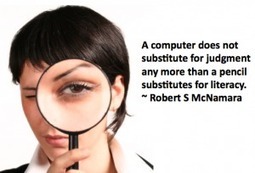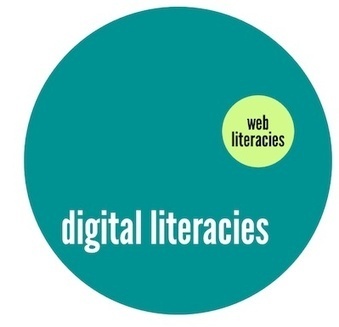Our learners live in a connected world where technology impacts their lives daily. Our students often dedicate many hours to communicating, sharing, and learning online. It’s the main way they learn and they receive a surplus of information. Sadly, few reflect on the value or validity of that information. We need to teach our students to have a critical eye when navigating the web. Below are a few ideas and resources to help you teach your learners about digital literacy.
Research and publish the best content.
Get Started for FREE
Sign up with Facebook Sign up with X
I don't have a Facebook or a X account
Already have an account: Login
 Your new post is loading... Your new post is loading...
 Your new post is loading... Your new post is loading...
|

Laura Montenegro's curator insight,
September 10, 2016 11:05 PM
Talking about professional development, it is important to look always for ways in order to improve our study and profesional skills as teachers and as digital individuals. With this social media can provides us athentic input and materials such as articles, games, books, etc. For our own development and it is also proved that it can guide and influence students perseptions and interests. The autor divided social media into three different sections: Information in ( the input, links and places where to find information), information processing ( the process of learning and capture more and more information) and finally, information out (when you share what you've learned). In my opinion it is very important to share our results because in this way we are going to realize what we really learn and ow we did it, also to understand how our learning process works and how it does not.
|















